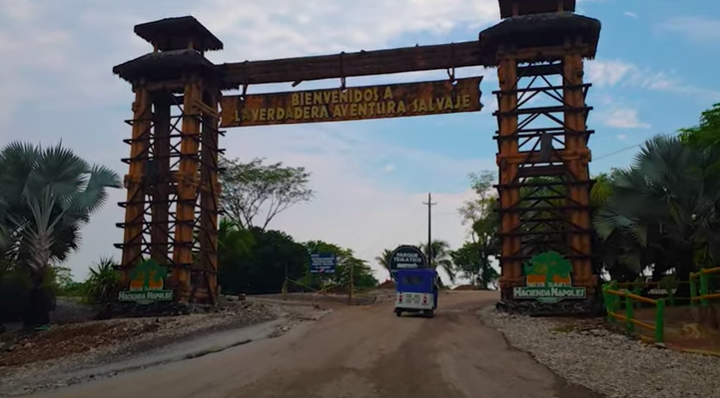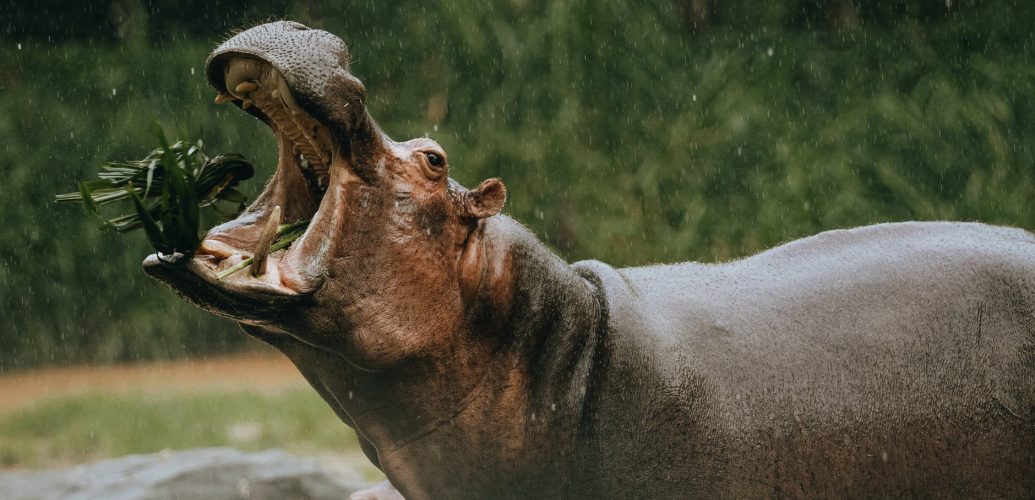It’s difficult to comprehend the sphere of influence and riches once possessed by the man known as the Cocaine King, drug lord, Pablo Escobar.
Escobar is the wealthiest criminal in history, having amassed an estimated net worth of US$30 billion by the time of his death—equivalent to $59 billion as of 2019—while his drug cartel monopolized the cocaine trade into the United States in the 1980s and early 1990s. (source)
Even more eyebrow raising are the peculiar ways the notorious drug slinger chose to spend his dough. Hiding out in the mountainside of his hometown of Medellín one night, he’s reported to have lit $2 million in cash ablaze to keep his daughter warm. As is often the case with those who have more money than they know what to do with, it wasn’t long before Escobar aimed his infinite cash flow towards the exotic animal trade.
The Rich Are Different
It’s no secret that the ultra rich have a penchant for owning and collecting foreign creatures. From ancient Roman Emperors to Justin Bieber, exotic pets have remained a bizarre rite of passage for the wealthy throughout history.
In response, a myriad of theories have emerged in an attempt to rationalize this uniquely human impulse, with some experts linking it to a desire to feel connected to nature and others drawing the more insidious conclusion that it stems from an affinity for superiority. In the world of extreme affluence, it turns out, wild animals are often just another commodity—rare, expensive oddities that allow people to amass social status.
But what’s going on in the brains of these animal collectors—and why has this cultural trend persisted for so long? Special guest and professor of psychology and biology at York University, Suzanne MacDonald, sheds some light on this conundrum in Episode 2 of Anthropomania. Here, she points out that on an evolutionary level, exotic pets could be a way for people—primarily dudes, actually—to flaunt their wealth and attract the ladies. What kind of ladies, you might be wondering? That part we’re still trying to figure out.
It’s clearly not about conservation. That’s not the motivation, but the motivation seems to be, for some dude, usually a dude to show others that he can do things that no one else can do.
Suzanne MacDonald, York University on Anthropomania Podcast Episode 2
MacDonald’s observations are particularly relevant when we take into consideration the story of Escobar’s surreal, but true, collection of animals — the reverberations of which are still being dealt with today. At the pinnacle of his prominence in the late 70s, Escobar was estimated to be worth roughly $30 billion and consistently ranked one of the wealthiest men in the world.
A wanted man looking to secure some refuge, the Colombian drug lord purchased a gigantic Colombian estate—known as Hacienda Nápoles—and dedicated a portion of its lush premises to an expansive menagerie of exotic animals.

Among the assortment of imported animals to call his sprawling 7,000 acre ranch home were rhinos, giraffes, kangaroos, zebras, and four hippos.
This is where things get interesting.
In 1993, when Escobar was killed, the Colombian government seized control of his estate and got to work relocating its many animals. The hippos, however, posed a unique problem due to the potential difficulties and dangers of having them moved. Soon enough, the hippos were roaming free in the wild terrain surrounding the debunked estate.
Fast forward to today, the now feral hippos have multiplied—numbering between 65 to 80—and have made themselves quite at home in the Colombian wilderness. But, as is often the case with invasive species, there’s growing concern that the thumping horde is impacting the native ecosystem and disrupting locals.
Signs that the animals are altering the chemistry of local waterways and creating new, unwanted runoffs with their large footprints have prompted the country’s authorities to continue seeking out a solution. As you can imagine, capturing and mobilizing these behemoths is a pretty daunting (if not nearly impossible) task that’s incited some head scratching. On top of that, the hippos have become somewhat of a local eccentricity and object of fondness for locals and tourists, further muddling the issue.
While a verdict is yet to be reached regarding the right course of action, there’s no denying it’s a sticky (albeit, totally intriguing) situation, both ecologically and socially. After all, the hippos never asked to be a part of Escobar’s obscene display of wealth—they’re just chilling by the river, basking in the South American sunshine.
To dive even further into the fantastic, peculiar world of rich people and exotic animals, tune into Episode 2 of Anthropomania ‘The Real Tiger Kings: Private Zoos of the Crazy Rich.’
Subscribe today on your favourite app.

